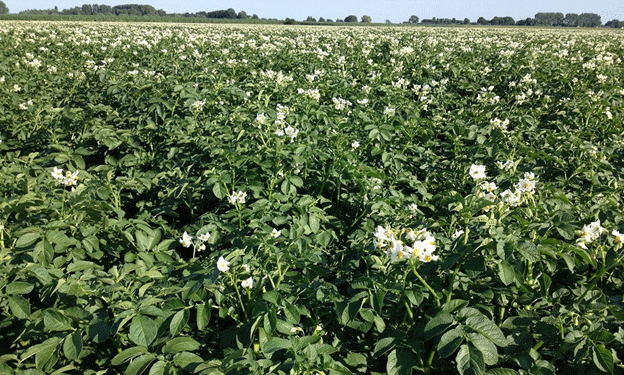In a major push toward sustainability, Jumbo Supermarkets, one of the largest retail chains in the Netherlands, has set a bold target to ensure that by 2027, at least 10% of its sales in potatoes, vegetables, and fruits will come from organic farming. This follows a series of steps the retailer has already taken to support sustainable agricultural practices and provide more options for environmentally conscious consumers.
Jumbo’s sustainability strategy aligns with broader trends in global agriculture, where organic farming is gaining momentum. According to the International Federation of Organic Agriculture Movements (IFOAM), the demand for organic products worldwide has been steadily increasing, with organic farmland now representing nearly 1.5% of global agricultural land. Jumbo’s target is not just a commitment to meet consumer demand, but also a deliberate effort to create a more sustainable food system in the Netherlands.
Supporting Farmers in the Transition to Organic Agriculture
Jumbo’s goal is designed to support Dutch farmers in making the transition to organic farming. The company is committed to working with local farmers to create long-term, sustainable agricultural practices. As part of this, Jumbo provides financial incentives for growers working under the On the Way to PlanetProof certification, which recognizes sustainable farming practices. This initiative is crucial in helping farmers adopt methods that are not only beneficial for the environment but also economically viable.
In addition, Jumbo has partnered with various organizations to foster new sustainable farming techniques. For example, they are collaborating with farmers, Unilever, Agrifirm, and Ardo to support the cultivation of regenerative carrots — a farming practice that focuses on improving soil health and promoting biodiversity. Research from the Regenerative Organic Alliance highlights that regenerative agriculture methods can help combat climate change by sequestering carbon in the soil, offering a win-win situation for both farmers and the environment.
Expanding the Organic Produce Range
Jumbo has been steadily expanding its organic product range in recent years. Beyond the popular organic vegetables and fruits such as pumpkin, ginger, and cabbage, the supermarket chain has introduced new options like Dutch edamame beans, which were developed in collaboration with local farmers. This not only contributes to offering a wider selection of sustainable produce to consumers but also helps foster local agricultural innovation. Jumbo’s efforts reflect the increasing consumer interest in organic options. A 2023 study by the European Commission showed that nearly 75% of European consumers are willing to pay more for products that are environmentally sustainable, with organic food being one of the most popular choices.
The Role of Consumer Education and Pricing
However, Jumbo recognizes that simply increasing the organic offerings is not enough. Many consumers are still hesitant to buy organic due to higher prices or a lack of understanding about the benefits of organic produce. Menno Wigtman, the Unit Manager at Jumbo Supermarkets, emphasized the importance of consumer education and making organic products more accessible. He stated that by offering a broader organic range and competitive prices, alongside educational campaigns, Jumbo aims to encourage more consumers to make organic choices. This aligns with the recent push in many countries, including the Netherlands, to increase awareness of the environmental benefits of organic agriculture, which include healthier soils and better biodiversity, as noted by Jan Groen, Chairman of Bionext.
Jumbo’s strategy is also part of a larger trend where retailers are taking an active role in creating a sustainable food system. A report by Euromonitor International showed that over 50% of consumers are seeking more sustainable brands, a trend that Jumbo is capitalizing on by increasing its organic product offerings.
Collaborating Across the Agricultural Chain
The move to expand organic agriculture is not just about product offerings; it’s about building strong relationships with farmers and stakeholders across the agricultural supply chain. Jumbo is working with a variety of organizations and industry players to ensure that the transition to more sustainable farming practices is economically feasible for farmers. This approach includes working on other sustainability initiatives, such as sustainable pork farming (Zonvarken) and promoting ethical dairy farming through the Better Life label.
By supporting both large and small-scale farmers, Jumbo is fostering economic resilience within the agricultural sector. According to a report from the FAO, investment in sustainable agriculture not only supports environmental health but also provides farmers with greater market opportunities and long-term viability.
A Vision for a Sustainable Future
Jumbo’s commitment to increasing the share of organic fruits, vegetables, and potatoes is a major step in the transition towards sustainable agriculture. By focusing on supporting farmers, expanding the organic range, and promoting education about the benefits of organic farming, Jumbo is helping to build a more sustainable and resilient food system. As consumer demand for organic products continues to grow, retailers like Jumbo will play a pivotal role in shaping the future of agriculture — one that prioritizes the environment, health, and sustainability.







